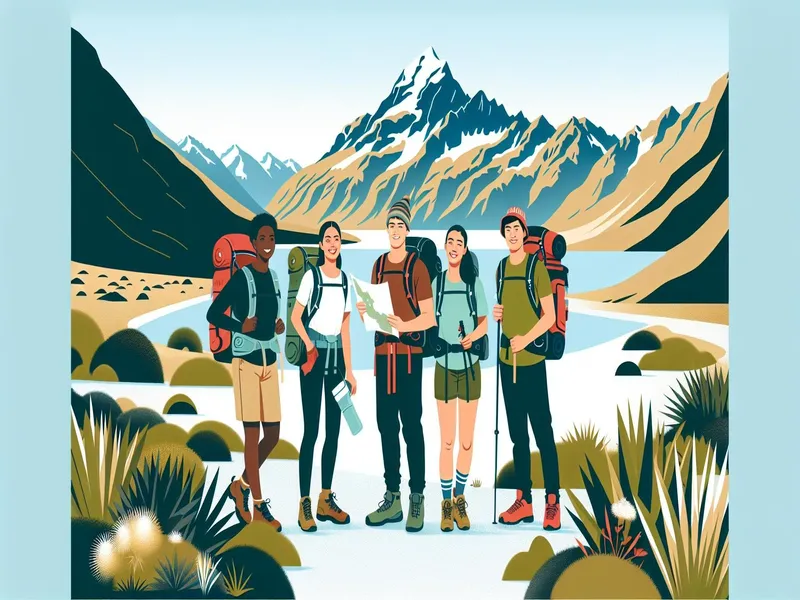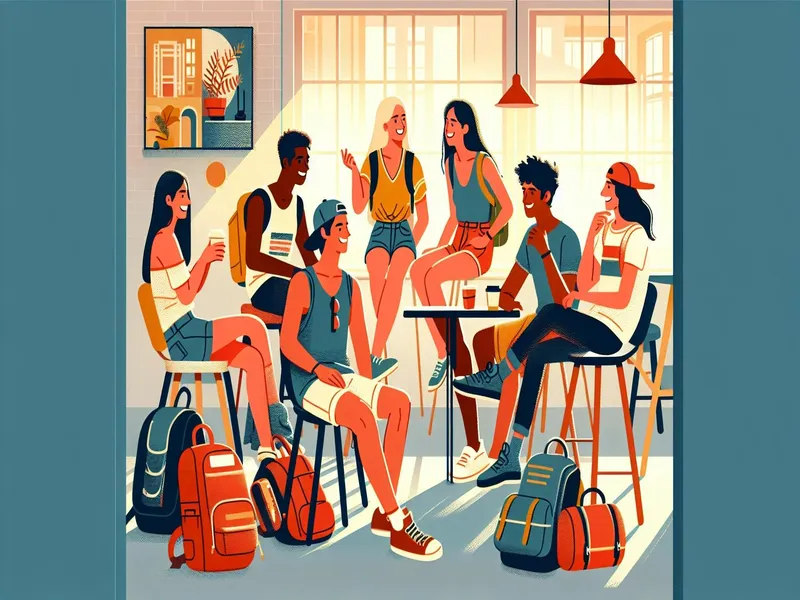
Many travelers want to experience the stunning landscapes and vibrant cultures of this region but worry about the costs. This guide will show you how to make your dream trip a reality on a budget.
Ignoring the need for cost-effective travel strategies can lead to overspending, stress, and missed opportunities. Without proper planning, you might find yourself cutting corners or skipping must-see attractions just to stay within budget.
I’ve spent years exploring Oceania’s diverse destinations while keeping expenses in check. From hidden gems to affordable activities, I’ve gathered tips that ensure you get the most out of every dollar spent.
Whether you’re a backpacker looking for cheap accommodations or a family seeking affordable adventures, there’s something here for everyone. Tailoring advice for different types of travelers ensures that you’ll find practical solutions suited to your needs.
I understand your concerns because I’ve been there too—eager to explore but cautious about spending. Let me guide you through budget-friendly options so you can enjoy Oceania without financial stress. For more ideas on affordable activities during your travels, check out our article on travel activities.
Best Budget Destinations in Oceania
Exploring Oceania on a budget doesn’t mean skimping on experiences. From lush landscapes to vibrant cities, there’s plenty to see without very costly. Let’s jump into some top destinations where you can stretch your dollars (or should I say, local currency) and still have an incredible time.
New Zealand
New Zealand is a dream for budget travelers who love nature. You can camp in stunning spots like Milford Sound or hike through Tongariro National Park without spending much. Public transport is reliable, so getting around isn’t too costly either. For food, check out local farmer markets—they’re filled with fresh produce that’s easy on the wallet.
When I visited Auckland, I stayed at a cozy hostel in the city center for just $20 a night. The best part? Many of New Zealand’s breathtaking sights are free! Think about enjoying geothermal parks or wandering through Hobbiton for less than you’d expect.
Australia
Australia might seem pricey, but there are ways to keep costs down. Start with hostels—most major cities like Sydney and Melbourne have great options that provide comfort without the hefty price tag. Use public transportation; it’s efficient and cheaper than renting a car.
I remember finding hidden gems while exploring Brisbane’s South Bank Parklands—a fantastic spot with free swimming lagoons and beautiful gardens. And don’t miss out on street food markets; they offer delicious meals for under $10!
Here are some tips:
- Visit museums during free-entry times.
- Beaches are always free!
- Look for “happy hour” deals at restaurants.
Fiji
Fiji sounds exotic and expensive, right? But it’s surprisingly affordable if you know where to look. Opt for guesthouses instead of resorts—they’re often run by locals who offer insights into island life.
During my stay on Viti Levu, I discovered that many activities like snorkeling and hiking trails don’t cost much or anything at all if you’re up for some adventure! Plus, local eateries serve tasty dishes like “kokoda” (a Fijian ceviche) at reasonable prices.
Consider these budget-friendly tips:
- Take advantage of package deals combining accommodations with tours.
- Use local buses instead of taxis.
- Shop at local markets for fresh fruits and snacks.
Budget-Friendly Activities

When you’re traveling in Oceania on a budget, there are lots of ways to have fun without spending a ton. Let’s jump into some wallet-friendly options that let you experience the best of this amazing region.
Outdoor Adventures
Oceania’s natural beauty is stunning and often free to enjoy. In New Zealand, hiking trails like the Tongariro Alpine Crossing offer epic views without costing a dime. You can pitch your tent at numerous affordable campgrounds across both islands.
In Australia, national parks such as Blue Mountains and Daintree Rainforest provide endless opportunities for hiking, swimming, and wildlife spotting. If you love water sports, try surfing at Bondi Beach or snorkeling in the Great Barrier Reef; many places rent equipment cheaply.
Want something more laid-back? Fiji’s beaches are perfect for sunbathing or beachcombing — just bring your own towel!
Cultural Experiences
Exploring local culture doesn’t have to expensive. In Sydney, stroll through The Rocks district where history comes alive with street performances and free museums. Melbourne’s laneways are full of vibrant street art that won’t cost you a cent to admire.
Head over to New Zealand’s Maori cultural centers like Te Papa Museum in Wellington — they often offer free exhibitions showcasing indigenous arts and crafts. If you’re lucky enough to visit during a local festival, you’ll get an authentic experience filled with music, dance, and food stalls.
Fiji also has wonderful markets where you can learn about traditional crafts and pick up handmade souvenirs directly from artisans for very reasonable prices.
Sightseeing Tours
Self-guided tours can save you money while giving you flexibility. Download maps or apps highlighting must-see spots in cities like Auckland or Brisbane. Walking around these cities lets you stumble upon hidden gems you’d miss on busier itineraries.
Hop-on-hop-off buses are another great option if you’d rather not walk everywhere but still want control over your schedule. Some even offer discounts for multiple-day passes which might be worth it if you’re staying longer.
For island-hopping adventures in Fiji or Samoa, public ferries between islands are much cheaper than private charters yet equally scenic; don’t forget your camera!
Affordable Accommodations

Finding a place to stay that won’t expensive is key when traveling in Oceania. Let’s jump into some great options where you can rest your head without emptying your wallet.
Hostels and Backpackers
Hostels and backpacker lodges are lifesavers for budget travelers. You’ll find these all over places like New Zealand, Australia, and Fiji. They offer dorm-style rooms at a fraction of hotel prices. Plus, they’re perfect if you want to meet fellow adventurers.
I remember staying at Base Backpackers in Auckland. It was clean, friendly, and had an awesome common area where I met folks from around the globe. Don’t worry about sacrificing comfort; many hostels nowadays come with private room options if shared spaces aren’t your thing.
Budget Hotels
If you prefer a bit more privacy but still need to keep costs down, budget hotels are your best bet. Chains like Ibis Budget or local spots often provide basic amenities at reasonable rates.
During one of my trips to Sydney, I found a cozy little spot called Hotel 59. It wasn’t fancy, but it had everything I needed: comfy bed, free Wi-Fi, and even breakfast included! Look out for deals online on sites like Booking.com or Agoda—they sometimes have last-minute discounts that can save you big bucks.
Camping Options
For those who love the great outdoors (and don’t mind roughing it a bit), camping is both an economical and adventurous option. Oceania’s landscapes make this choice particularly appealing.
New Zealand has countless campgrounds in stunning locations like Fiordland National Park or along the Abel Tasman Coast Track. In Australia, national parks such as Kakadu offer designated camping areas with basic facilities for low fees. When I camped near Lake Tekapo under its famous starry sky—it was magical!
Be sure to check local regulations since some places require permits or pre-booking during peak seasons.
These accommodation options ensure you spend less on lodging and more on experiences—because isn’t that what travel’s all about?
Saving on Transportation
Traveling around Oceania on a budget involves some savvy planning, especially when it comes to transportation. Let’s jump into how you can save money while exploring this beautiful region.
Public Transport
Public transport in many Oceania cities is not just affordable but also reliable. In places like Sydney and Auckland, buses, trains, and ferries are your best friends. For instance, in Sydney, the Opal card offers discounted fares and daily caps that keep costs low. I remember spending just a few bucks a day hopping between iconic sights using my Opal card.
- Sydney: Use the Opal card for cheap travel across buses, trains, and ferries.
- Auckland: The AT HOP card provides similar benefits with capped daily rates.
Keep an eye out for free shuttle services too! Some cities offer them from key tourist spots to downtown areas.
Car Rentals
Renting a car can seem pricey at first glance but splitting costs with fellow travelers makes it manageable. When I traveled through New Zealand, my friends and I rented a compact car and shared the expenses. We used comparison sites like Rentalcars.com to find the best deals.
Here’s what you should consider:
- Book early: Prices tend to rise closer to your travel dates.
- Compact cars: These usually have better fuel efficiency.
- Insurance: Check if your credit card covers rental insurance; it could save you extra fees.
Pro tip: Look out for relocation deals where rental companies offer super-low rates or even free rentals if you’re driving their vehicle back to its original location!
Hitchhiking and Carpooling
If you’re up for an adventure and want to meet new people, hitchhiking or carpooling can be both economical and fun. In New Zealand’s South Island, I hitchhiked from Queenstown to Wanaka—a journey filled with amazing stories from locals who picked me up.
Safety first though—always trust your instincts. If you’d rather plan ahead:
- Carpool Apps: Use platforms like BlaBlaCar (popular in Australia) where drivers post trips they’re taking.
- Hostel Boards: Many hostels have bulletin boards with ride-sharing opportunities posted by other travelers.
Tips for Eating on a Budget
Eating on a budget in Oceania can be both fun and delicious. Here are some tips to help you savor the local flavors without very costly.
Local Markets
Local markets are treasure troves for budget travelers. Wandering through these bustling spots, you’ll find fresh produce, homemade goods, and sometimes even prepared meals at great prices. One of my favorite finds was the Queen Victoria Market in Melbourne. You can pick up everything from ripe fruits to artisan bread—perfect for throwing together a picnic. In New Zealand, check out the Wellington Night Market, where vendors serve up affordable street food alongside live music.
Street Food
Street food is not only cheap but also gives you a taste of authentic local cuisine. For example, Sydney’s Chinatown offers an array of affordable eats like dumplings and noodle dishes. Grab some laksa (a spicy noodle soup) or try banh mi sandwiches if you’re near a Vietnamese stall. In Fiji, roadside vendors sell kokoda, which is marinated raw fish in coconut milk—a must-try that won’t dent your wallet.
Cooking Your Own Meals
Cooking your own meals is one of the most effective ways to save money while traveling. Many hostels and budget accommodations offer communal kitchens where you can whip up something simple yet satisfying. During my trip to Auckland, I often visited the nearby supermarket to grab ingredients for pasta or salads—easy dishes that don’t require much prep time or cooking skills. If you’re staying somewhere with BBQ facilities (common in Australia), grilling fresh seafood or veggies can be both cost-effective and enjoyable.
In Closing
Traveling through Oceania on a budget is not only possible but incredibly rewarding. By being mindful of your spending and taking advantage of affordable options, you can experience the region’s stunning landscapes, vibrant cultures, and unique adventures without very costly. Whether you’re hiking in New Zealand, exploring free attractions in Australia, or island-hopping in Fiji, there are countless ways to make your trip memorable and cost-effective.
From choosing budget accommodations to finding economical dining options, every step of your journey can be optimized for savings. So go ahead plan wisely embrace local experiences and enjoy all that Oceania has to offer without worrying about overspending. Safe travels!